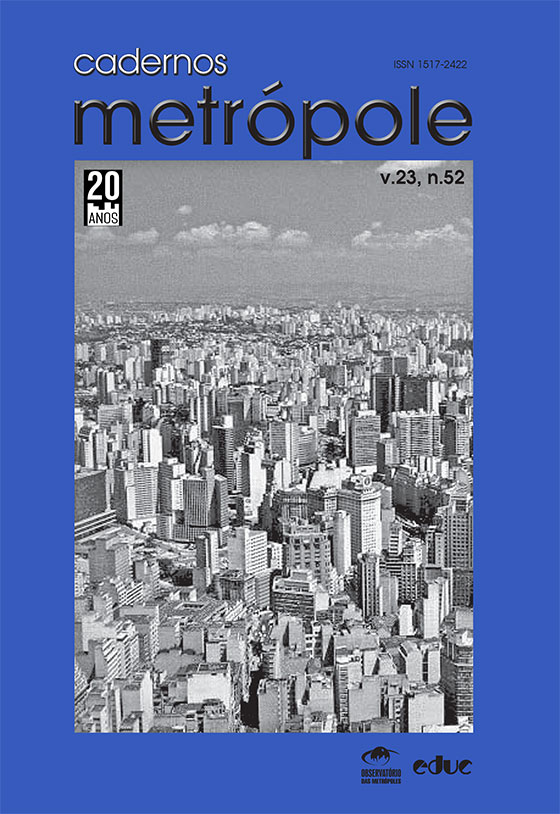A fundação de Belo Horizonte: ordem, progresso e higiene, mas não para todos
DOI:
https://doi.org/10.1590/2236-9996.2021-5210.ePalavras-chave:
higiene, planejamento, história urbana, legislaçãoResumo
O plano de Belo Horizonte, capital inaugurada no fim do século XIX, teve ordem, progresso e higiene como premissas básicas. Todavia, a cidade apresenta, desde suas origens, um padrão peculiar de segregação socioespacial. Essa condição tem sido atribuída a seu plano, que previa a construção de uma zona urbana elitista, expulsando antigos moradores e imigrantes pobres para os subúrbios desorganizados e sem higiene, assim como áreas de risco e ambientalmente frágeis. Esta pesquisa histórica revela quais mecanismos e práticas resultaram em tal segregação socioespacial, agindo além do plano e em consequência dele, ao mesmo tempo que desafia dicotomias tais como centro rico/periferia pobre que têm dominado a historiografia sobre Belo Horizonte, revelando uma realidade muito mais complexa.
Downloads
Publicado
Como Citar
Edição
Seção
Licença
Copyright (c) 2021 Patrícia Capanema Alvares Fernandes

Este trabalho está licenciado sob uma licença Creative Commons Attribution-NonCommercial-NoDerivatives 4.0 International License.
A revista não tem condições de pagar direitos autorais nem de distribuir separatas.
O Instrumento Particular de Autorização e Cessão de Direitos Autorais, datado e assinado pelo(s) autor(es), deve ser transferido no passo 4 da submissão (Transferência de Documentos Suplementares). Em caso de dúvida consulte o Manual de Submissão pelo Autor.
O conteúdo do texto é de responsabilidade do(s) autor(es).


